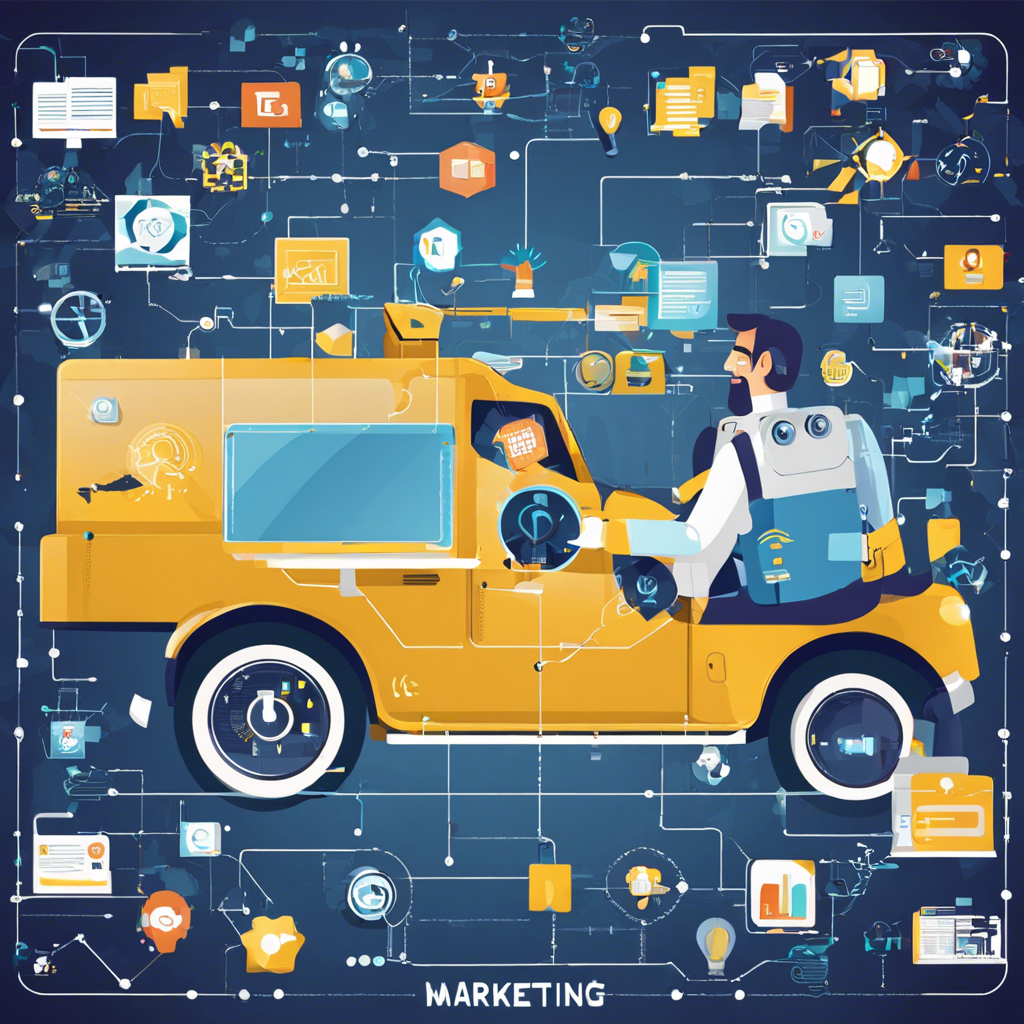Explore how AI is revolutionizing Digital Marketing with automation, personalization, and advanced analytics, reshaping the industry.
Artificial intelligence (AI) is no longer a futuristic concept but an integral part of our daily lives, and its impact on digital marketing is profound and transformative. AI technologies are revolutionizing the way businesses connect with their audiences, offering unprecedented opportunities for personalization, automation, and data-driven decision-making. From automating routine tasks to providing deep insights into consumer behavior, AI is reshaping the digital marketing landscape and opening new avenues for growth and engagement.
In this article, we’ll delve into the various roles AI plays in digital marketing, exploring its capabilities and benefits. We will also discuss how businesses can leverage AI to enhance their marketing strategies and stay ahead in a rapidly evolving market.
##
Automating Routine Tasks
AI’s ability to automate repetitive and time-consuming tasks is a game-changer for digital marketers. By leveraging AI-powered tools, marketers can streamline their operations and focus on more strategic initiatives.
###
Efficient Campaign Management
AI simplifies campaign management by automating the creation, optimization, and monitoring of digital marketing campaigns. **Machine learning algorithms** analyze historical data to predict the optimal ad placement, bid adjustments, and creative combinations. This enables marketers to run more efficient campaigns with improved ROI.
###
Intelligent Content Creation
AI-powered content generation tools are revolutionizing content marketing. These tools can create personalized, data-driven content at scale, from blog posts and product descriptions to social media updates. By analyzing user preferences and content performance, AI can generate engaging content tailored to specific audience segments. For an insightful read on content creation, check out this article on [Content Marketing Strategies](https://example.com/content-marketing-strategies).
Benefits of AI-Generated Content:
–
Scalability: Generate vast amounts of content quickly.
–
Personalization: Customize content for individual users.
–
Data-Driven Insights: Optimize content based on analytics.
##
Personalizing the User Experience
AI allows marketers to deliver highly personalized experiences that cater to individual preferences and behaviors.
###
Dynamic Personalization
AI algorithms analyze user data in real-time, enabling marketers to serve dynamic and relevant content to each user. This can include personalized product recommendations, tailored messaging, and custom landing pages. By understanding user intent and preferences, marketers can create more engaging and impactful experiences.
###
Predictive Analytics for Targeting
AI-powered predictive analytics helps marketers anticipate user needs and behaviors. By analyzing historical data and patterns, AI can predict customer churn, identify high-value leads, and suggest targeted marketing actions. This intelligence enables marketers to take proactive measures, such as personalized retargeting campaigns, to improve customer retention and conversion rates. Explore more on predictive analytics [here](https://example.com/predictive-analytics-guide).
##
Advanced Analytics and Insights
AI transforms raw data into actionable insights, helping marketers make informed decisions.
###
Natural Language Processing (NLP)
NLP techniques enable AI to understand and interpret human language, allowing marketers to analyze customer feedback, reviews, and social media conversations. By extracting sentiment, intent, and topics, marketers can identify trends, address concerns, and enhance the customer experience. For more on NLP in marketing, refer to this [comprehensive guide](https://example.com/nlp-in-marketing).
###
Real-Time Data Visualization
AI-driven data visualization tools help marketers make sense of vast datasets in real-time. Interactive dashboards and visual analytics provide marketers with a comprehensive view of campaign performance, customer behavior, and market trends. This enables them to react quickly to changing conditions and optimize their strategies accordingly.
##
Questions
How can AI enhance lead generation in digital marketing?
AI improves lead generation by automating the process of identifying and qualifying leads. It can analyze website behavior, social media interactions, and other data points to predict lead quality and suggest targeted actions. This helps marketers focus on high-value prospects and improve conversion rates.
What is the role of AI in customer retention strategies?
AI enables marketers to deliver personalized experiences that increase customer satisfaction and loyalty. By understanding customer preferences and predicting behavior, AI can help marketers implement targeted retention campaigns, offer personalized incentives, and provide timely support.
How does AI contribute to cross-channel marketing efforts?
AI allows marketers to create a seamless customer journey across various channels. It can analyze customer interactions and preferences, enabling marketers to deliver consistent messaging and experiences across websites, social media, email, and other touchpoints.
##
Conclusion
AI’s role in digital marketing is multifaceted, offering automation, personalization, and advanced analytics. By leveraging AI technologies, marketers can streamline operations, deliver hyper-personalized experiences, and gain valuable insights from data. As AI continues to evolve, its impact on digital marketing will only grow, creating exciting opportunities for marketers to innovate and engage their audiences in new and meaningful ways.
